My favorite art books aren’t necessarily about art. They’re about peak performance and neuroscience. I’ve been studying this subject since the very beginning of my illustration career when there weren’t any books at all on the subject.
Or so I thought. I adore books and back then, during one of my long visits to a local bookstore, I found a thin volume entitled, Creativity: Genius and Other Myths, by Robert Weisberg. The book was all about one of my suspicions in art school: that the idea of talent was overblown and useless. I thought that because I knew I didn’t have any. And many instructors told me I didn’t have any either. But I had a desire to learn.
Weisberg’s excellent book was the only one out there for a long time until I stumbled over the performance studies conducted by Anders Ericsson. He wanted to understand why some people could excel in fields like athletics and music, while the majority struggled.
As I read through these books, their discoveries about music led me to understand other creative endeavors such as writing and painting. My speculations about innate talent became clearer.
You can train with the intensity and extreme focus of an Olympian to achieve your goals as an artist.
I applied what I’d learned and watched my skills take hold and then soar. I’ve studied the myths of talent for decades and have used what I describe as ‘focused training’ to continually improve my ability to paint.
I’m not the only one tracking this. Besides athletes, there are now lots of successful creatives, musicians, artists, and authors using neuroscience to understand how they perform. You can train with the intensity and extreme focus of an Olympian to achieve your goals as an artist.
Each of these books overlap each other. What seems unclear in one will be simplified and explained again in another. Taken as a whole, I generally read them in this order, making new discoveries as I went.
They are mind-openers about a subject which so many claim to have a deep understanding.
The Talent Code, Daniel Coyle
Start with this one. For a succinct and easy understanding of how you grow your skills, this one will get you flying. This is the one to blow your mind right off the bat. Be prepared to learn how simply you can achieve, if only you can focus.
Mindset, Carol Dweck
The classic of neuroscience books that describes the differences in peoples’ mindsets in their approach to life. It practically describes the polarity in today’s societal issues and why. It will challenge just how open-minded you think you are. Artists are all about that, aren’t they? Uh huh.
The Genius in All of Us, David Shenk
Wonderful and necessary new information about IQ and genetics that will actually inspire and free you up to gain confidence.
Talent is Overrated, Geoffrey Colvin
Gets right to the point. Based on an article in Fortune magazine, Colvin explains how it’s not just hard work, but a very specific kind of work. (What I call ‘focused training’) The key to all of these books is how you train, how you analyze results, and how you learn from mistakes.
A Whole New Mind, Daniel Pink
Fascinating book about the right/left hemispheres of the brain and how they do what they do. How the right brain dominates in the creative market place. How artists and creative thinkers are becoming leaders in more fields than simply art and graphics, and will eventually guide the species forward.
Bounce, Matthew Syed
Specifically studies sports performance, but every time he talks about training, you’ll hear artistic training. It widens out into many other fields that draw on similar methods to achieving skills.
Flow, Mihaly Csikszentmihalyi
Another classic of the field about his famous investigations of ‘optimal performance’ and focusing your attention to keep you in the zone, or ‘flow,’ as a state of consciousness.
Creativity: Genius and Other Myths, Robert Weisberg
This is the one that got me rolling as a young artist. It has been updated, but appears to only reach academics. Get an old copy of the original as they’re still out there.
Peak, Anders Ericsson
Ericsson wrote about the subject so early that his original books about it are almost unreadable for the layman. He teamed up in recent years to work with an author to clarify his studies in this incredibly inspiring book. It’s a great way back to the main understanding of focus and peak performance for this list.
But there’s one last book to bring us full circle from above…
The Little Book of Talent, Daniel Coyle
A tiny little book with a huge heart that’s brilliant for distilling the complicated information down to helpful bits and habits to build and use for growing your skillset. I wrote about it on Muddy some years ago.
Extras: anything by Richard Restak about learning and brain performance.
Many more books come out regularly now. None seem to focus on art alone. We’re artists, right? For a subject so wrought with ideas about ‘how to be creative’ and chock full of methods for ‘opening your mind’ to creative thinking, it still falters from the stigma that one is born an artist, with innate talent, or they are hopelessly lost and will never make it.
The myth of the gift is still with us. Don’t let it slow you down.


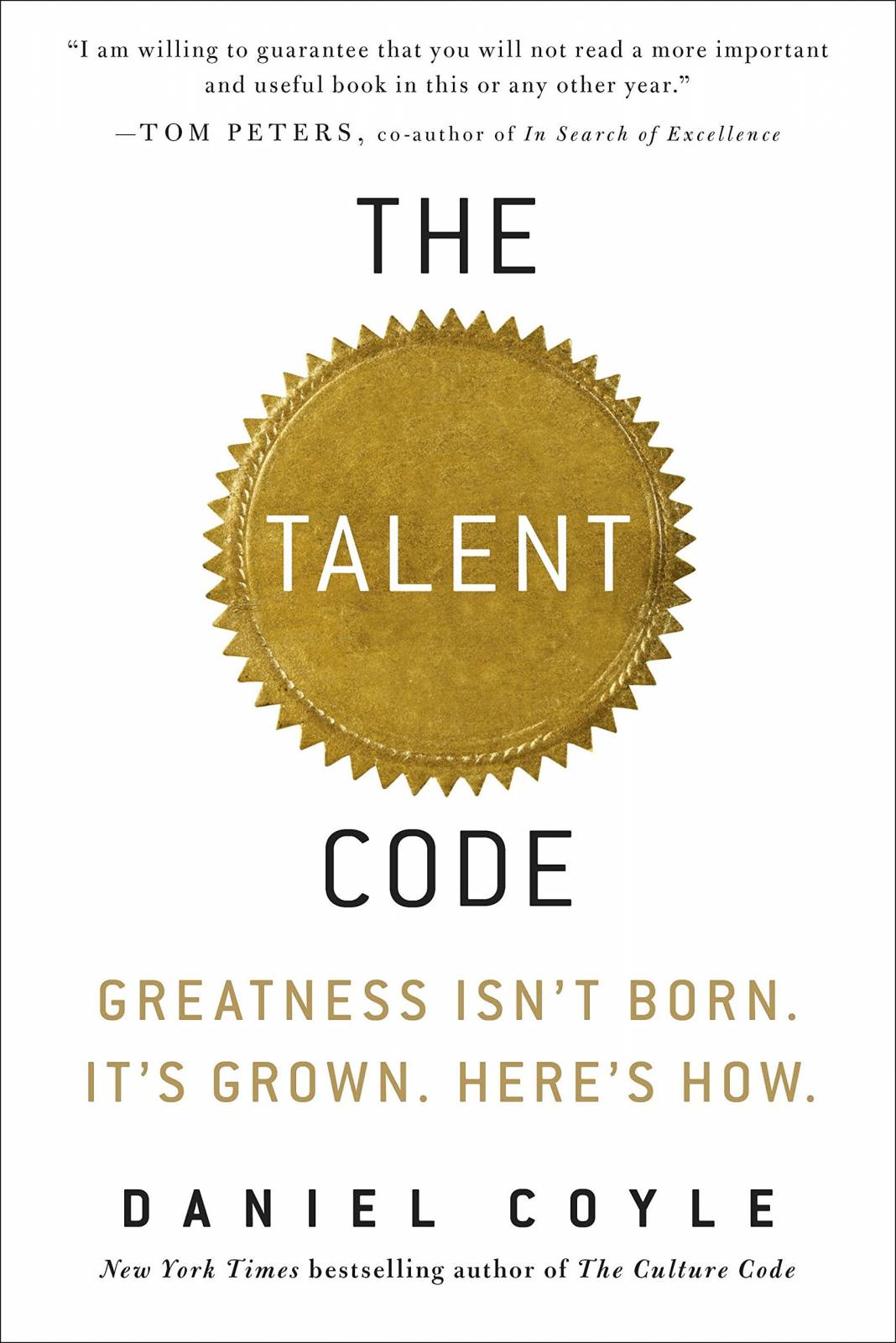
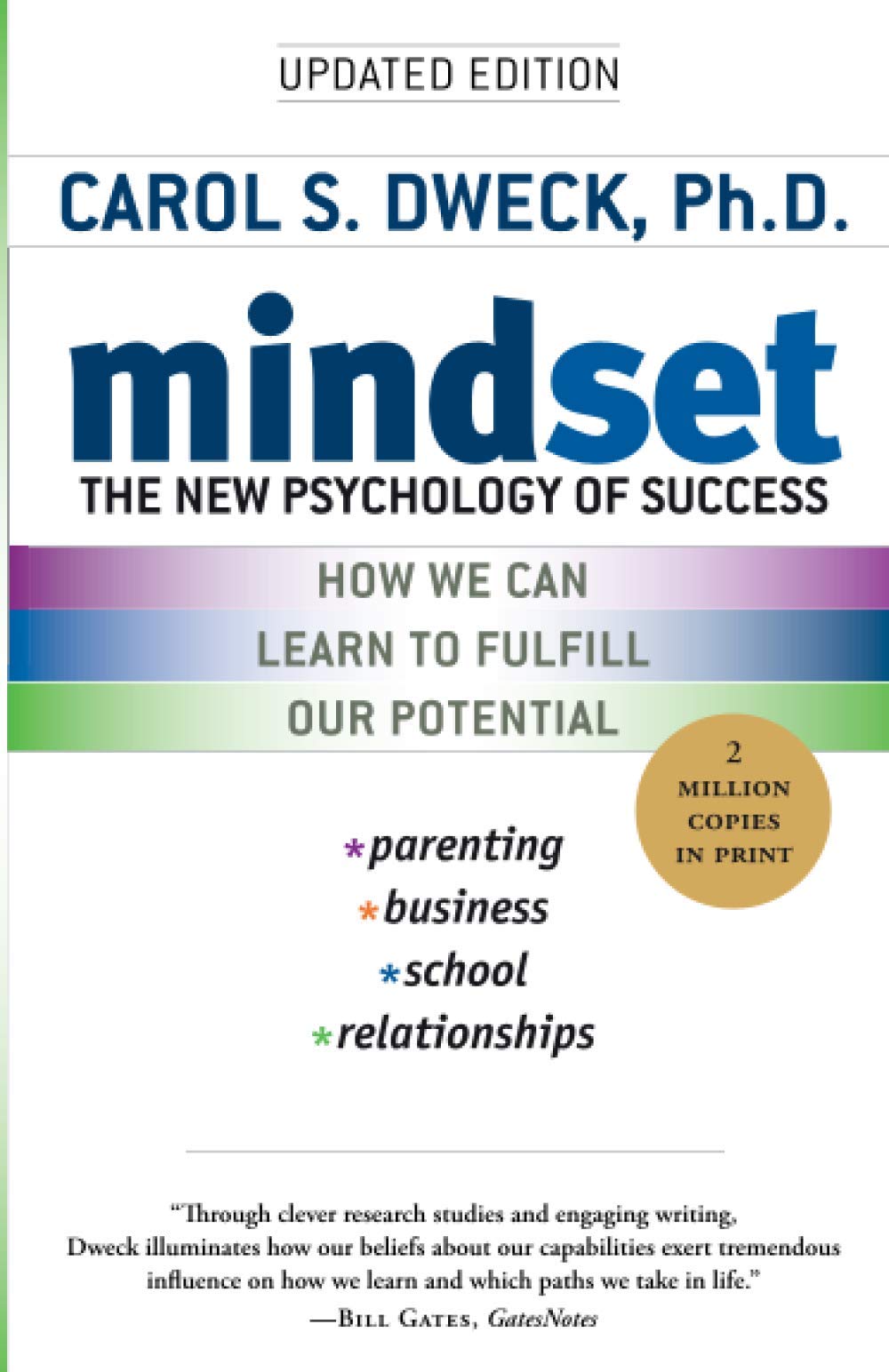

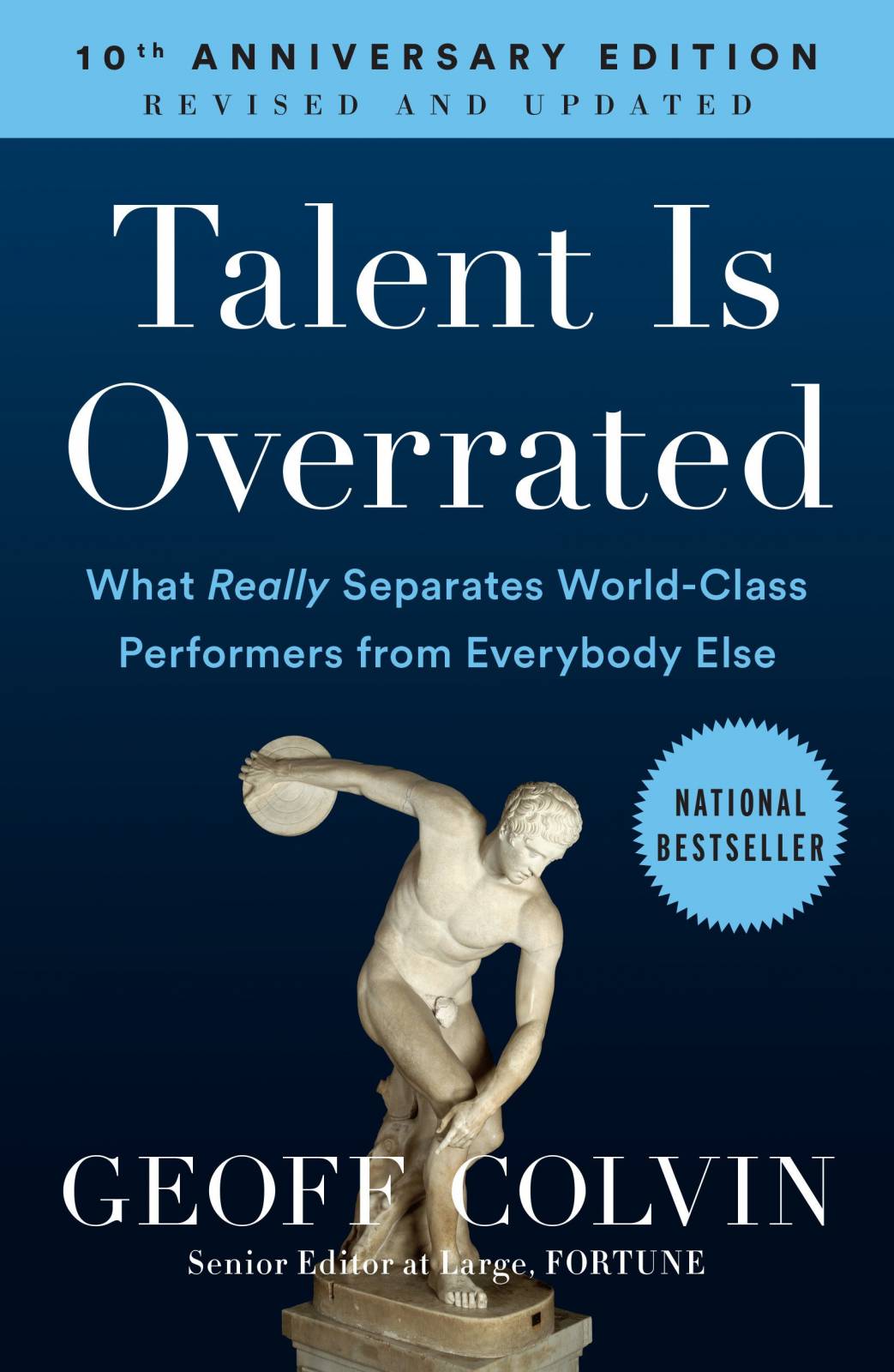
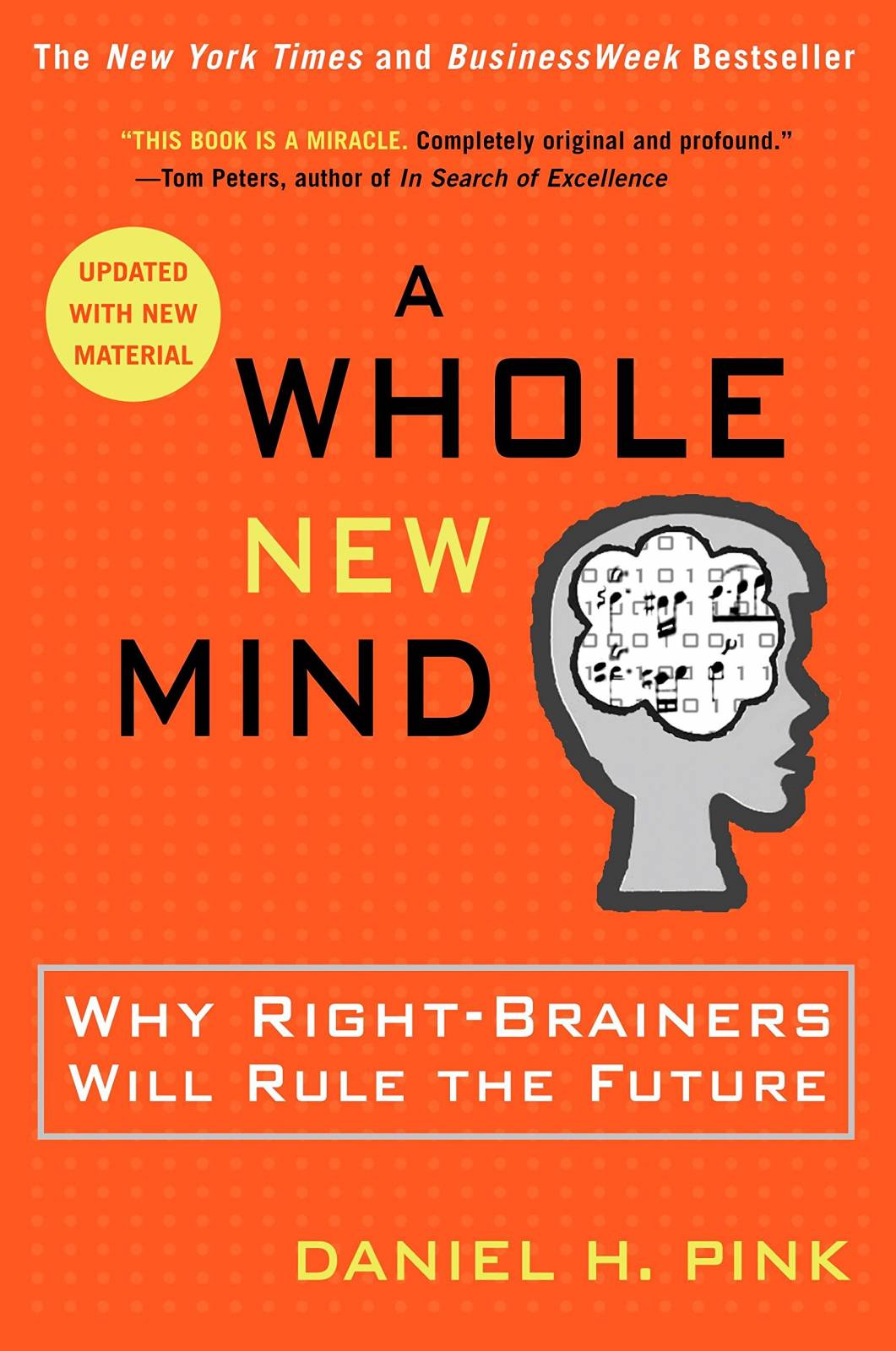
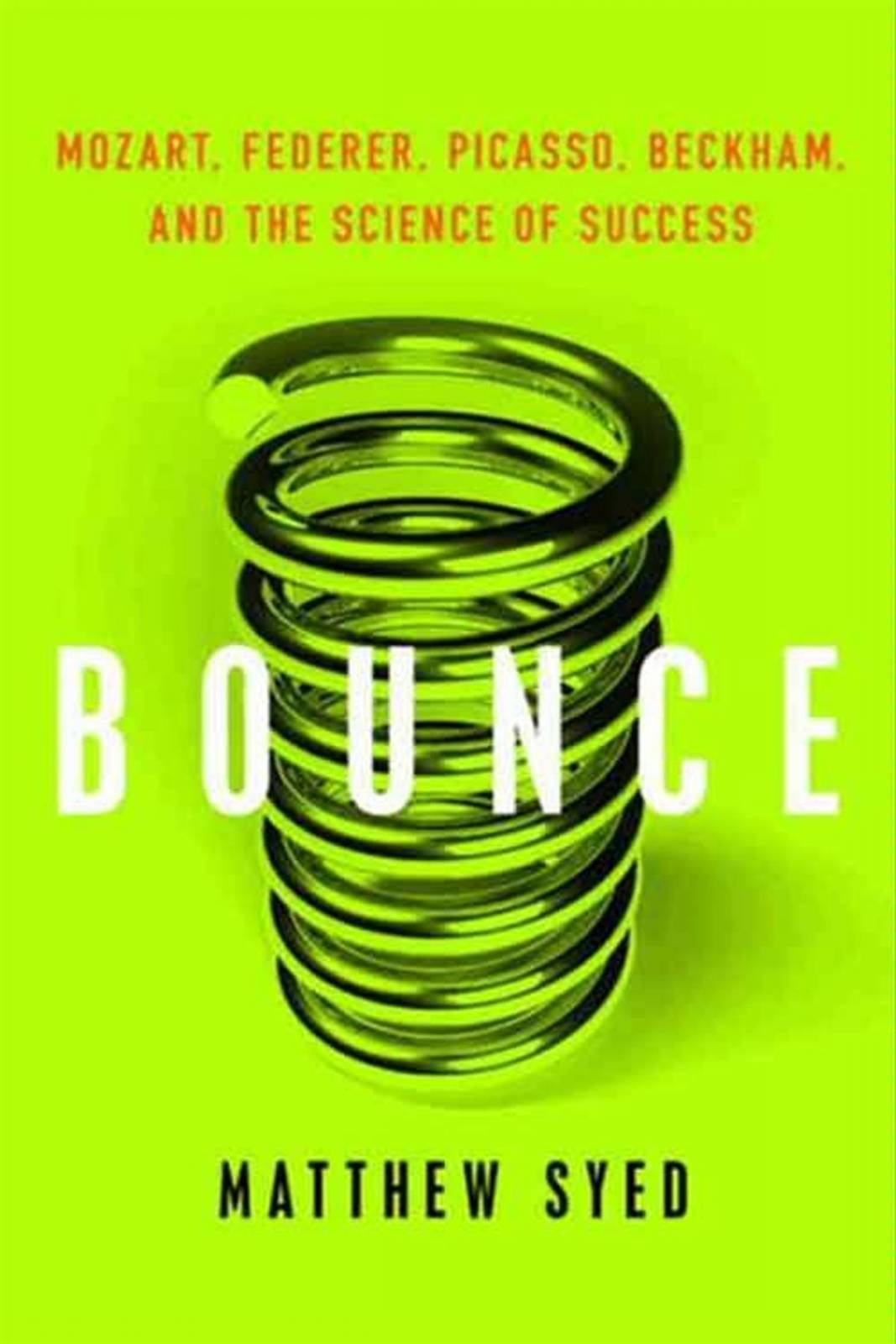
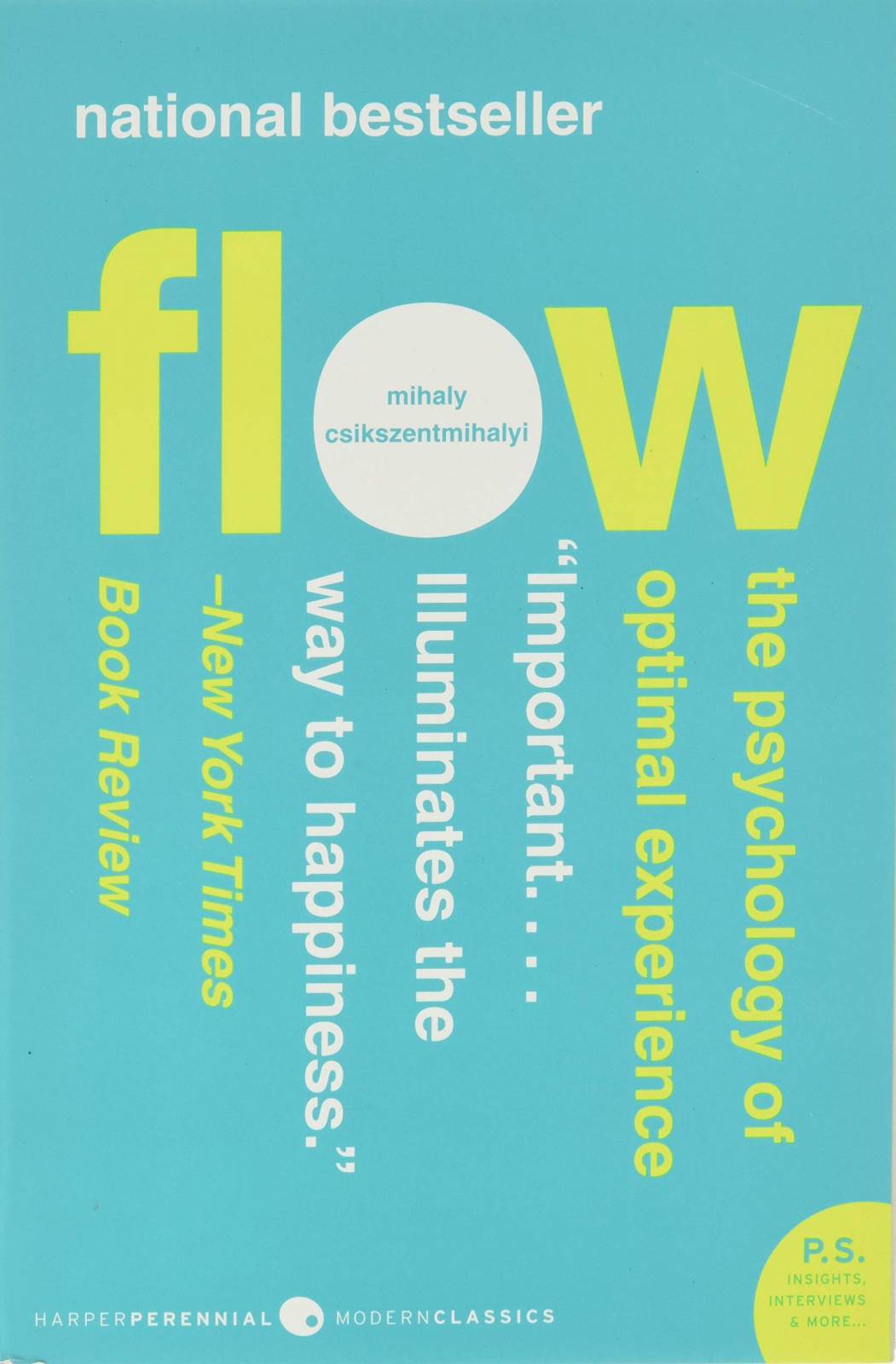
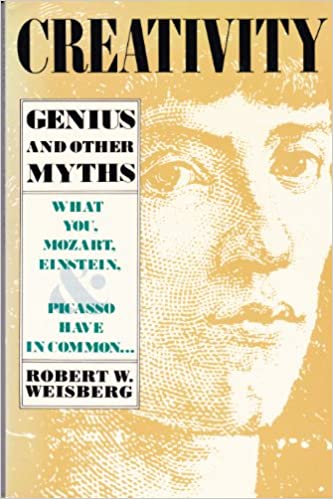
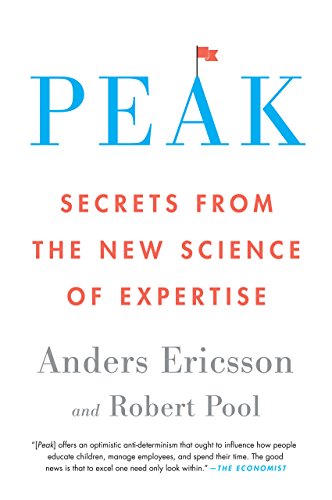
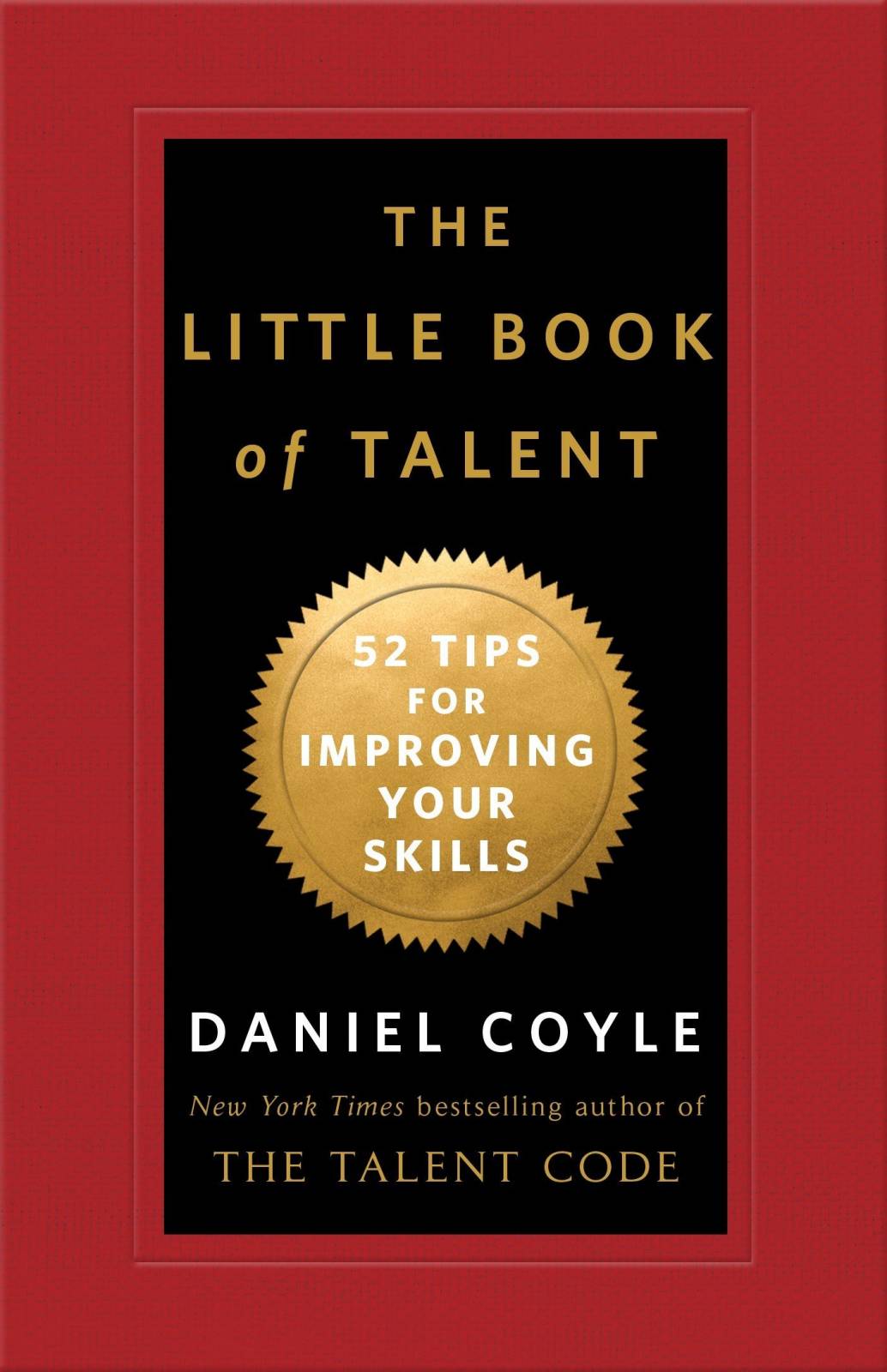
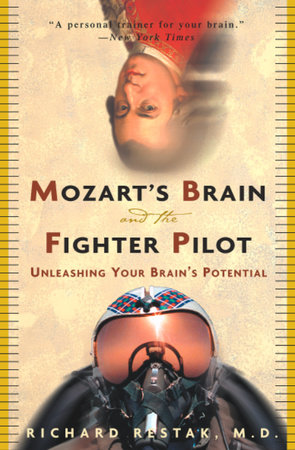
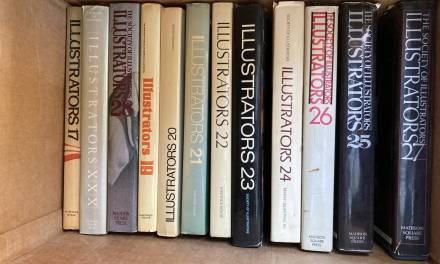

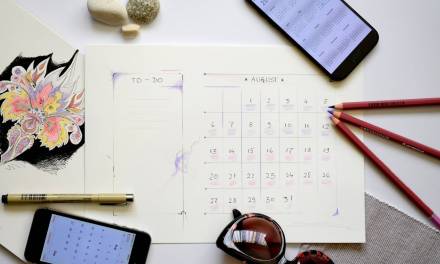
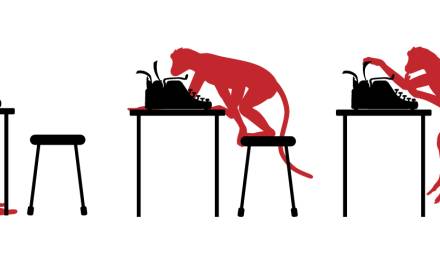
Strangely, no one of these authors is considered as genius.
Aaahh… I don’t want to get drawn into a long essay about the fallacy of the Myth of Talent, so I am heavily redacting this post to avoid interesting tangents.
Directly from The Little Book of Talent
1. We all possess talents.
2. We’re unsure how to develop those talents to their full potential.
The existence of all of the books above should actually reinforce a simple and worthwhile idea. That while talent does exist, it is essentially meaningless without development and appropriate techniques can promote better and faster development of talent.
A simple study making that case: https://neurosciencenews.com/talent-training-brain-differences-2332/
Speaking anecdotally, most of my experience hearing someone described as “talented” has not been of the nature of an arcane gift. It also hasn’t been reference to a Roman unit of currency. Rather, “talent” or “talented” has been a statement to effect of one or more of the following:
Commentary on apparently advanced technique, particularly as related to expectations for age or background.
Recognition of skill, technique or application, especially as contrasted against the speaker’s own limited abilities.
Surprise at a heretofore unknown skill demonstrated to the witness for the first time.
Appreciation of artist’s accumulated experience and scope, scale, and/or breadth of work.
Praise of technique, skill and application that are insprational to aspiring artists.
The few descriptions above suffice to explain what declarations of talent convey to me, and I think to many people. Skill that is not supernatural, likely predisposition, definitely developed.
Several years ago, an attorney friend of mine told me about something a client said to him that set his teeth on edge. He represented a woman facing dire circumstances and resolved the case to her benefit, after which she tearfully told him “you’re my hero.” He bristled at the term. “No”, he told her. “Don’t call me that. My father is a real hero. I’m just a lawyer.”
His father was a retired colonel and decorated US marine, awarded the Navy Cross; three Silver Stars; five Bronze Stars with ”V”; Airmedal with ”V”; and seven Purple Hearts. A beloved husband and father, a writer, artist, leader of men and wonderful human. So I understood my friend’s reaction.
And I told him he was wrong.
“I understand your definition of hero. I get it. Generally, I agree. But you’re wrong in this case. You think you were ‘just doing your job’, you ‘knew the law’, it was ‘easy for you to do’—seemingly no great effort—and this ‘wasn’t combat’ with lives on the line. It wasn’t ‘heroic’. But to your client, it was one of the only times in her life someone has listened to her, stood up for her, and actually made a difference that helps her escape misery and get a chance at a better life. You don’t think you ‘saved a life’. She feels like you saved hers. You’re not your father, but to her, you’re her hero.”
I believe there’s a difference between how you are using the term “talent” and what most people mean when they say it. And they pack a whole lot into those six letters.
I don’t want to get drawn into a long essay about the fallacies of the Myth of Talent argument, so I am heavily redacting this post of tangental observations, BUT…
Directly from The Little Book of Talent
1. We all possess talents.
2. We’re unsure how to develop those talents to their full potential.
The existence of all of the books above should actually reinforce a simple and worthy idea. Talent does indeed exist. And we all have it. But while talent does exist, it is effectively meaningless without effort and development. Appropriate techniques in training can promote better and faster development of talent if effort and discipline are invested.
A simple study making that case: https://neurosciencenews.com/talent-training-brain-differences-2332/
Anecdotally, most of my experience hearing someone described as “talented” has not been of the nature of a divine or supernatural gift. It also hasn’t been reference to a Roman unit of currency. Rather, “talent” or “talented” has been a statement of recognition of one or more of the following:
* Commentary on apparently advanced technique, particularly as related to expectations for age or background.
* Recognition of skill, technique or application, especially as contrasted against the speaker’s own limited abilities.
* Surprise at a heretofore unknown skill demonstrated to the witness for the first time.
* Appreciation of artist’s accumulated experience and scope, scale, and/or breadth of work.
* Praise of technique, skill and application that are inspirational for aspiring artists.
Yes—in works of fiction and fantasy—yes, talent is synonymous with blessing or gift or inborn ability denied others. But that’s NOT what most people in the living and waking world are saying when they recognize talent.
The descriptions above its use in fiction suffice to explain what declarations of talent convey to me, and I think many others as well. Talent is developed skill displayed to wonderful effect—likely benefitting from predisposition—but definitely and impressively developed.
Would love to have The Wit & Wisdom of Gregory Manchess to be published one day! 😉